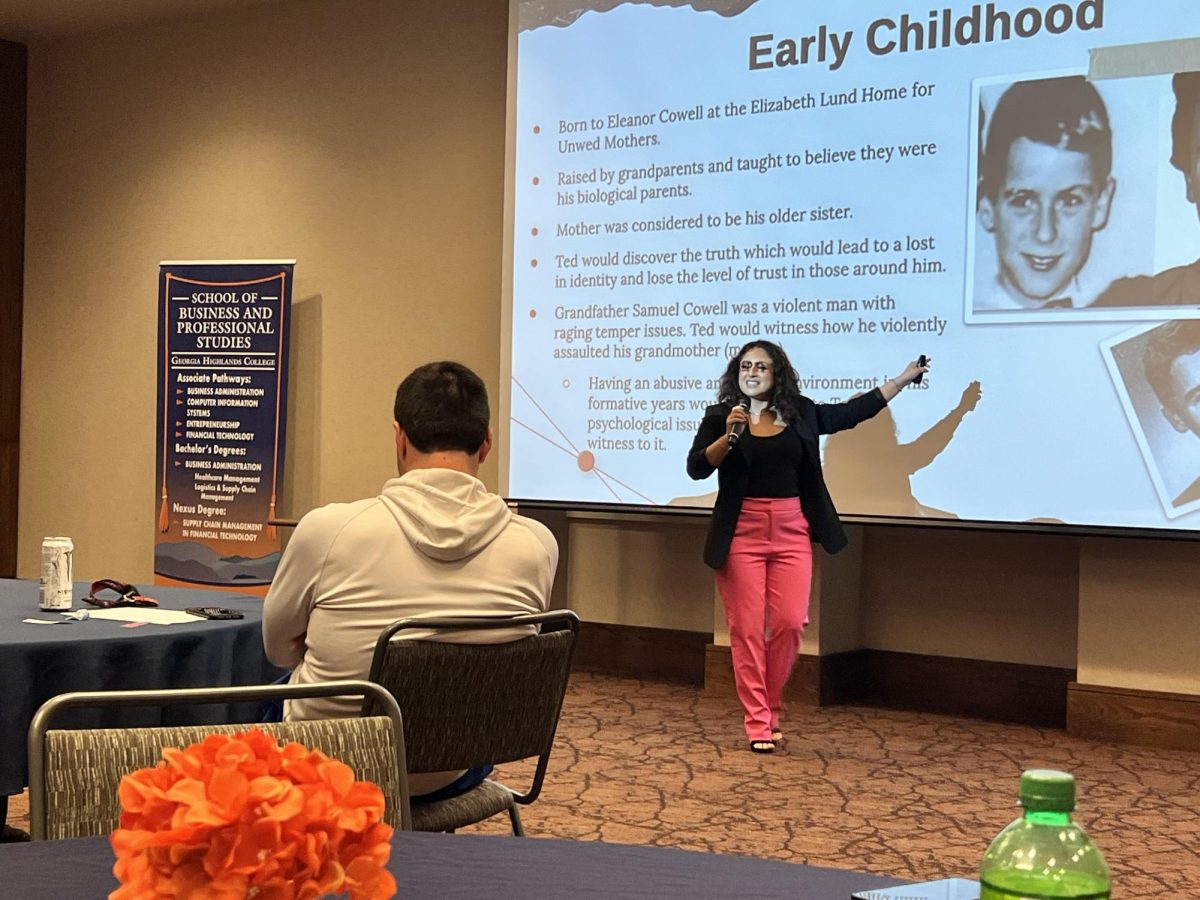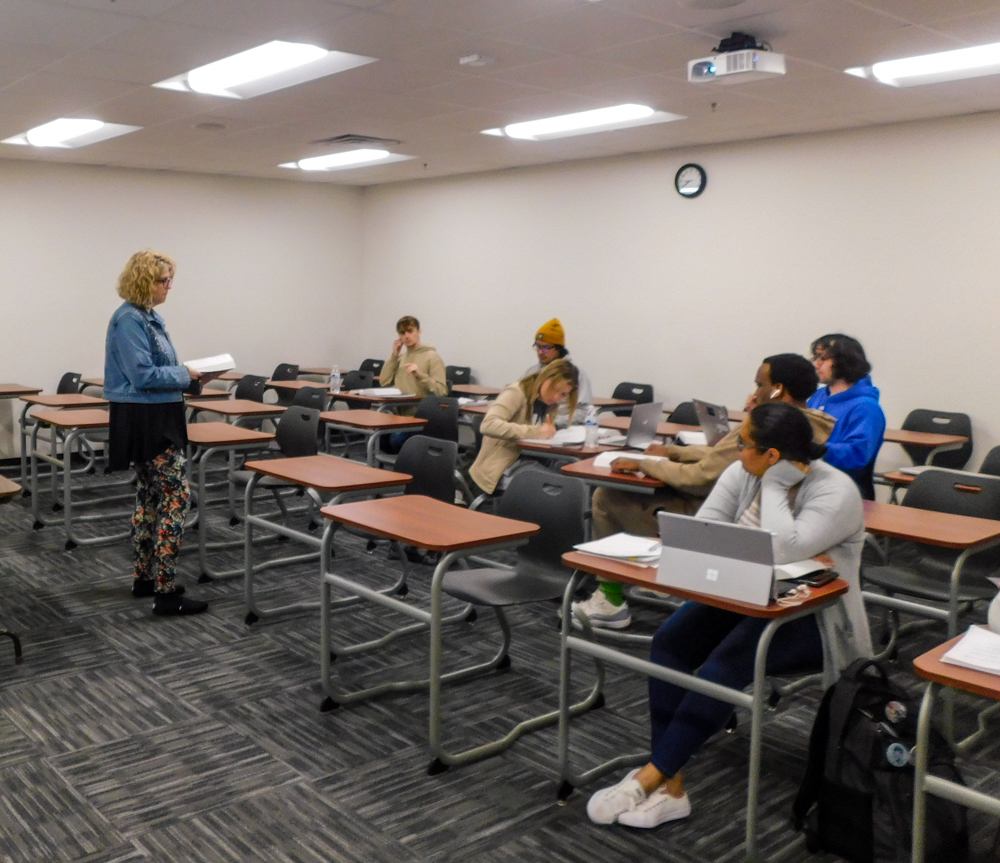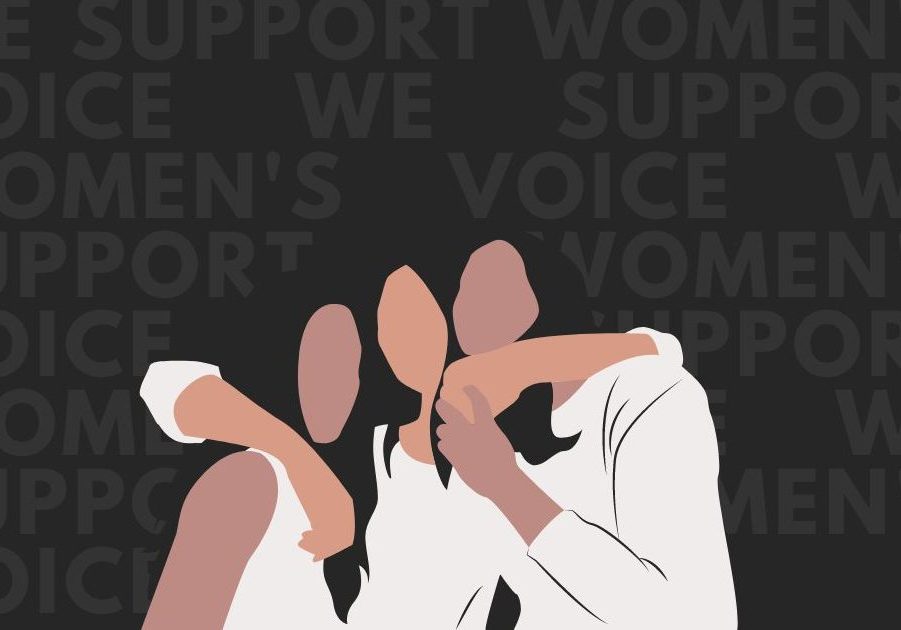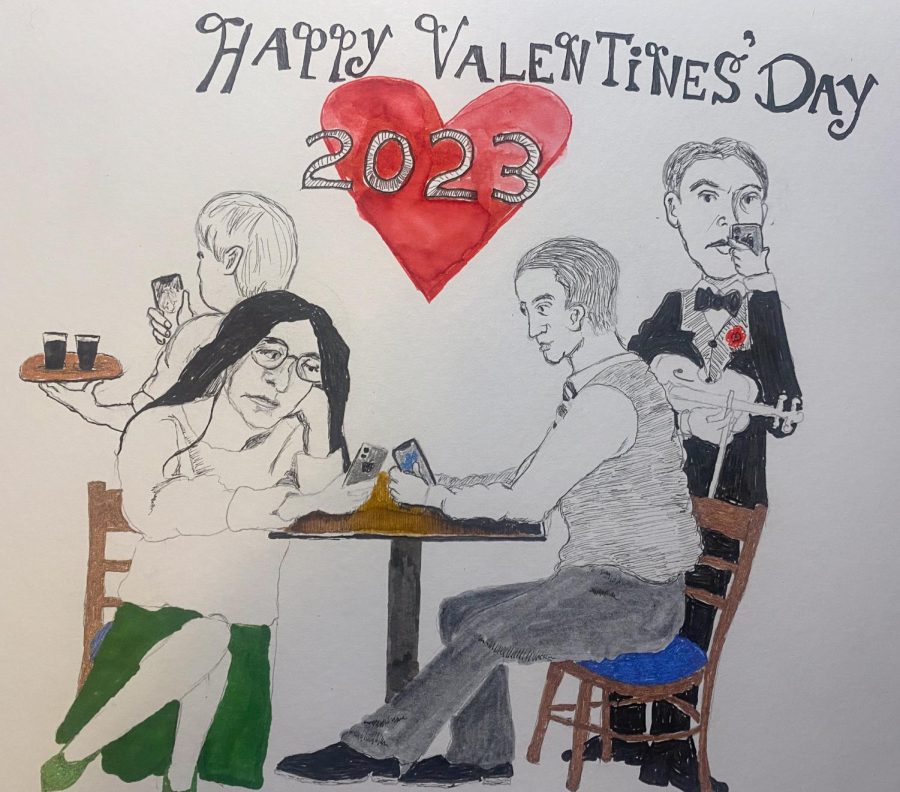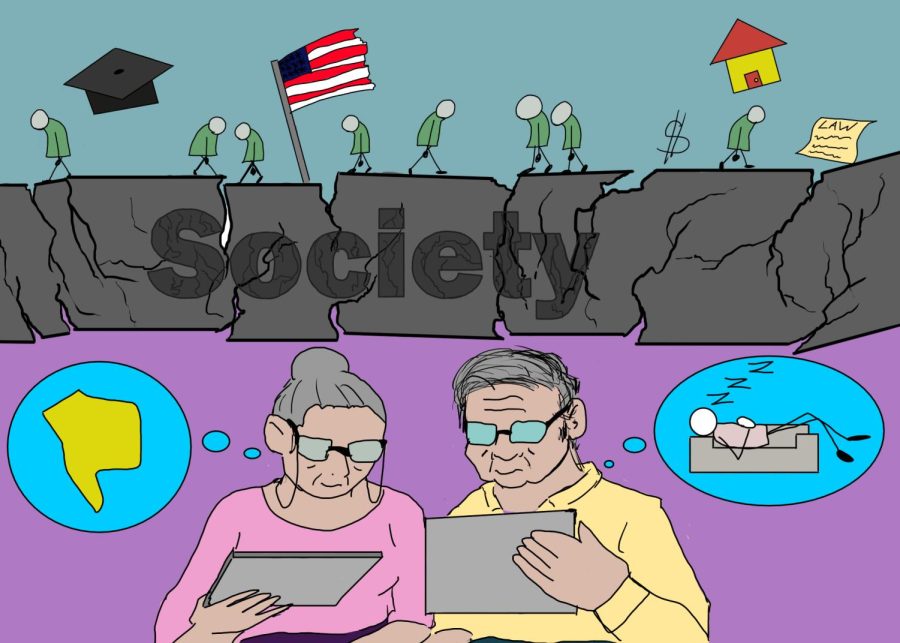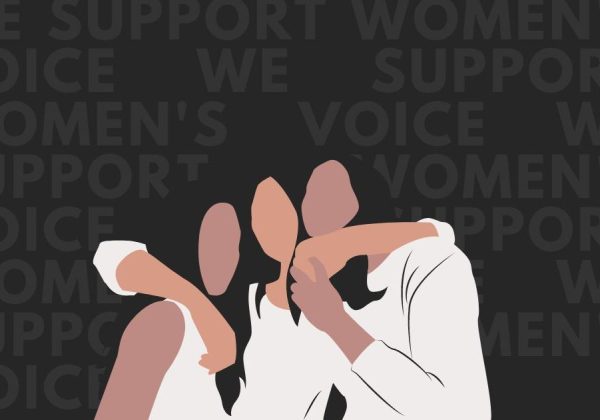Stop generational blame for economic issues
Baby boomers and Gen X have been playing the blame game with millennials and Gen Z for years. Younger generations are not responsible for the drastic change in economic conditions, they are victims of it.
February 20, 2023
Older generations do not realize the world is vastly different from the one they grew up in. Millennials and Gen Z are left with unsolved economic issues that are often to blame by Gen X.
Baby boomers and Gen X grew up in an era of American exceptionalism with the notion that the United States is the greatest country in the world and all you need to do is work hard and make the right decisions.
They complain that younger generations have this sense of entitlement, believe they don’t have to earn their money and performance doesn’t matter.
“When I was a kid, everyone said that we were just bums, lazy, would never work for the things we wanted and all we cared to do was watch MTV,” History Professor, Shannon Bontrager, said. “I feel like every young generation has to combat this to a certain extent.”
Older generations fail to realize that the choices they made led to the conditions we now live in.
According to CNBC, minimum wage workers would need to work over 100 hours a week to afford rent. The average one-bedroom apartment rent in Marietta is $1,556 per month.
The world we currently live in is quite different and the fundamental idea of “rugged individualism” has vanished for Gen X. We live in a time that began with the New Deal program created by former U.S. President, Franklin D. Roosevelt. The government was going to spend large amounts of money on the military, environmental issues and raise taxes for programs like Social Security.
The healthcare field, IT sectors and financial service jobs are booming, while the textile and heavy industry jobs are fading out.
An overwhelming number of economic issues become prominent as generations evolve.
When Ronald Reagan came to power, he was trying to go back to the Republican view of low taxation where corporations should be allowed to do whatever they want and to roll back on government regulation.
This is now the hard, grinding, desperately unhappy cycle we live under in the U.S.
Younger generations are being blamed for inflation, which is inaccurate. According to the Center for American Progress, the Inflation Reduction Act will crack down on the tax-dodging billionaires that caused inflation.
In a YouTube video titled “Debunking 4 Myths about Inflation,” author Robert Reich said, “The truth about inflation is getting covered up by countless myths spewed by corporations and their political lackeys.”
The federal minimum wage has not changed since it was established in 2009, still sitting at $7.25 an hour.
“Our country’s productivity gains in recent decades should have translated into a minimum wage today of $24 an hour — and by 2025, it should be almost $30,” Jon Schwarz, writer for The Intercept, said.
There are many Gen Z that still live with their parents because they can’t afford housing and are having to work two to three jobs just to put food on the table.
Older generations received great amounts of help from the government, but want to say “we pulled ourselves up by our bootstraps.”
The cost of college was much lower in the 60s and 70s, and even those that served in the military had their entire education paid for on top of receiving stipends through access to the GI Bill.
“In order to go to law school, my uncle paid something like $40 a tuition hour to attend college,” Bontrager said.
The younger generations, even at cost-effective colleges, are paying hundreds of dollars in tuition fees.
You can’t disagree that those older times did not work, because they did back then.
However, younger generations are not tied to outdated ideas and have recognized that old solutions aren’t working anymore. The rest of the world has moved on from the psychological impact of the Cold War.
“As a teacher, I see a lot of really bright, young students who look at the older generation with a lot of skepticism. This idea that they’ve screwed up, their time is done… now give us a shot,” History Professor, Steve Blakenship, said.
There are problems with a society that places so much emphasis on the individual while forgetting about the larger community. Capitalism is not concerned with your happiness, but rather, profit.



